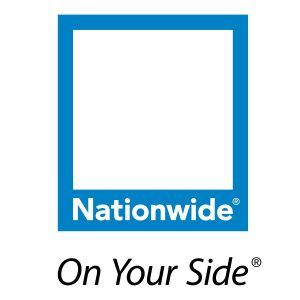
Mutual Vs. Public Insurance Companies
A former boss of mine, high up the corporate ladder in an insurance company, often complained about his own industry. “Insurance companies make money by not providing a service to their customers.” That is, insurance companies make money by collecting premiums and paying out the least amount of benefits possible. Of course, there’s a tough balancing act; if an insurance company becomes known for not paying out benefits, they could lose many customers, although a good advertising campaign focused on low-price premiums could counteract that mass departure.
Shareholders are concerned with profits and dividends; customers are concerned with service and the product. If an insurance company were structured so that all owners were also customers, these two competing priorities would be better aligned.
 Recently, Jay Frosting, host of the Consumerism Commentary Podcast, wrote on Twitter:
Recently, Jay Frosting, host of the Consumerism Commentary Podcast, wrote on Twitter:
Been seeing ads for Nationwide Insurance highlighting their lack of shareholders. Hadn’t seen that before. And it might work on me.
Nationwide’s status as a mutual insurance company means that the owners of the company are its policyholders. In financial structure, it’s similar to a non-profit organization. The company wants its payouts to match its premium collection as much as possible. With mutual companies, excess premiums at the end of the year are often returned to the customers or are used to adjust future premiums. All policyholders have a vote in the company’s operations. Most importantly, there is no pressure from Wall Street to meet arbitrary financial targets every quarter.
A company I used to work for went through a demutualization process, where policyholders became shareholders and the company’s shares began trading on the New York Stock Exchange. With more external scrutiny on the company’s financial statements, the corporate executives reined in the spending. Benefits to employees were among the first things cut — not necessarily health benefits, but the extra events and activities companies organize that make working for a company something beyond ordinary. Then the company reduced its standard employee benefits like health insurance.
Going public allowed the company to grow in a way it hadn’t been able to before. It was quickly becoming an international company and continuing its expansion beyond insurance, and with its shares trading on the stock market, it’s possible that this access to equity markets allowed the company to expand its growth.
Existence as a mutual company has disadvantages, as well. While policyholders have a vote in the company’s management, many do not exercise that vote and are not involved enough in the corporation to know what’s best for the company and its owners. Policyholders are in a less powerful position than the institutional investors who have the most say among external shareholders in a public company’s operations.
Pressure from Wall Street to perform can be a good thing; while a mutual company may be free to spend as much as it wants on parties as long as policyholders receive a rebate, a public company would be encouraged to cut back expenses. Having shareholders is a bigger incentive for lean operations than ownership among policyholders.
Regardless of an insurance company’s benefits for being a public company, the bottom line is the conflict between shareholder and customer priorities. When the customer is also the shareholder, there is no conflict, and this should be a consideration when choosing an insurance company. There are certain companies who would like you to believe that the only important aspect of an insurance company is the cost of the premium. This is why there are so many advertisements practically guaranteeing that customers switching will save money. The endless search for the company with the lowest premiums ignores the fact that some companies are more likely to refuse to pay claims. You want a company that does more than collect your premiums.
Nationwide Mutual’s choice to focus on the non-public aspect of the company is a wise choice, but the advertising — and the fact that it is a mutual company — doesn’t necessarily mean that it would automatically be a better choice. The chosen emphasis highlights that Nationwide recognizes there is a conflict of interest between customers and shareholders among public insurance companies. Customers want their claims to be paid, while shareholders want only enough claims to be paid to ensure customers don’t leave. However, without Wall Street scrutiny, mutual companies may not be operating as efficiently as possible, providing smaller rebates or premium price decreases than dividends would be if the companies were public.
Choose an insurance company based on how you predict it will handle your situation. With automobile insurance, you want the company to have a good record of paying claims, whether it’s a mutual company or a public company. Don’t shop solely on price, and don’t become a policyholder of a company just because it doesn’t answer to Wall Street.
There’s no worldwide database that allows shoppers to compare insurance based on claim track records, but that is the best way to evaluate a company when choosing insurance, but there are a number of helpful resources online.
- J.D. Power and Associates has a wealth of insurance related information from consumers’ perspectives. The magazine compiles claims satisfaction survey results for auto insurance and home insurance.
- Most states put insurance satisfaction data online. The State of New Jersey Department of Banking and Insurance helps compare premiums and complaint ratios for auto insurance, as well as more information for other types of insurance.
I’ve never given comparison shopping a chance. When shopping for auto insurance, once I had the freedom of choice, I followed AAA’s recommendations. For home/renters’ insurance, I chose the same company as my auto insurance. The company, Liberty Mutual, is a mutual company with, as far as I can tell, no immediate plans to go public.


Article comments
Anyone active here? They should be.
It’s definitely important to know what your premium is covering and services offered. I use Progressive for auto insurance, and so far no complaints with them.
That’s great! I don’t know about your company, but I often hear reports of “gray areas” when it comes to approving claims. When companies leave something up to interpretation, consumers can run into problems. It’s bad enough with health insurance that how a doctor chooses to encode a procedure — often there are choices — can determine whether that procedure is covered or not.
Just a quick nitpick – towards the beginning you talk about Nationwide’s ads that tout their status as a mutual. Towards the end you switch to talk about Northwestern Mutual, as if it is the same company. They are not. Both are mutuals. One has ads toting that and the other uses “mutual” in their name, but I don’t think Northwestern specifically focuses on their mutual status beyond that in ads.
Also, non-profit is not the best analogy for a mutual insurance company as they are certainly are for-profit organizations. The better analogy is that they operate like a co-op, which is owned by its customers. Another analogous organization is Vanguard. It is a “mutual” mutual fund company as the mutual funds (and therefore the shareholders of the mutual funds) own Vanguard itself.
Thanks for catching that, Andrew — I intended to write about Nationwide only.
No worries. I happen to use Northwestern for my term life. I have been pleased with them. My wife used Nationwide for her home and auto, but I did not have much experience with them myself. I had used Allstate, Zurich and GEICO in the past – all non-mutuals. When we “merged” our policies State Farm (another mutual) came in the lowest.
Overall, my experience has been that there are good mutuals and bad mutuals. Good non-mutuals and bad non-mutuals. It pays to get lots of quotes and check with others re the service you get if and when you need it. For a life policy (even term life), I would also say you want a very highly rated company for safety (Northwestern is one of the highest). For auto and homeoweners, if they go belly up, you can get another policy pretty easily. For life, you may no longer be able to get the same rates as you did when you originally got the policy b/c you are older or now have a health issue, so the safety of the IC counts much more.
How do you differentiate this about your feelings on Vanguard considering it is an investment equivalent.
good column. I use state farm for auto/home/life insurance and have been a satisfied customer for many years.
I’ve been a multi-policy holder (multiple auto, home, life) of State Farm for thirty years, and frankly I’ve never experienced anything to be overly happy about. Then again, I sadly doubt they’re much different than most insurance companies.
As far as I’m concerned, our world has become way too much investment based, and that has led to more bad than good. I’m very much considering a switch to a company that isn’t investment driven. There are too many Martin Shkreli’s in the world.
I judge my insurance based on price and service and USAA has the best of both worlds so far for me. I have had no problems with them but membership is limited which stinks for the general public who can’t get in. I’m glad my Dad was in the Navy and qualified me to be a member!
“There’s no worldwide database that allows shoppers to compare insurance based on claim track records”
Are there state or local databases that track this data? I did a little searching but have been unsuccessful so far.
Theoretically I’d expect mutual companies to be better. But it doesn’t always work out that way. We have Amica which is a mutual and they do a great job but they aren’t the cheapest.
Flexo, “…insurance companies make money by collecting premiums and paying out only a minimal amount of benefits.” This is a poor choice of words. The average auto insurance company probably pays out about 70 cents of every dollar in claims. The other 30 cents goes for claims expenses, underwriting expenses (policy services, agent commission, marketing, etc). They make money on the float and the better ones actually make money (“underwriting profit”) before taking the investment income into account. I doubt more claims (% or dollar amount) are paid by a mutual insurance company, but your hypothesis makes sense.